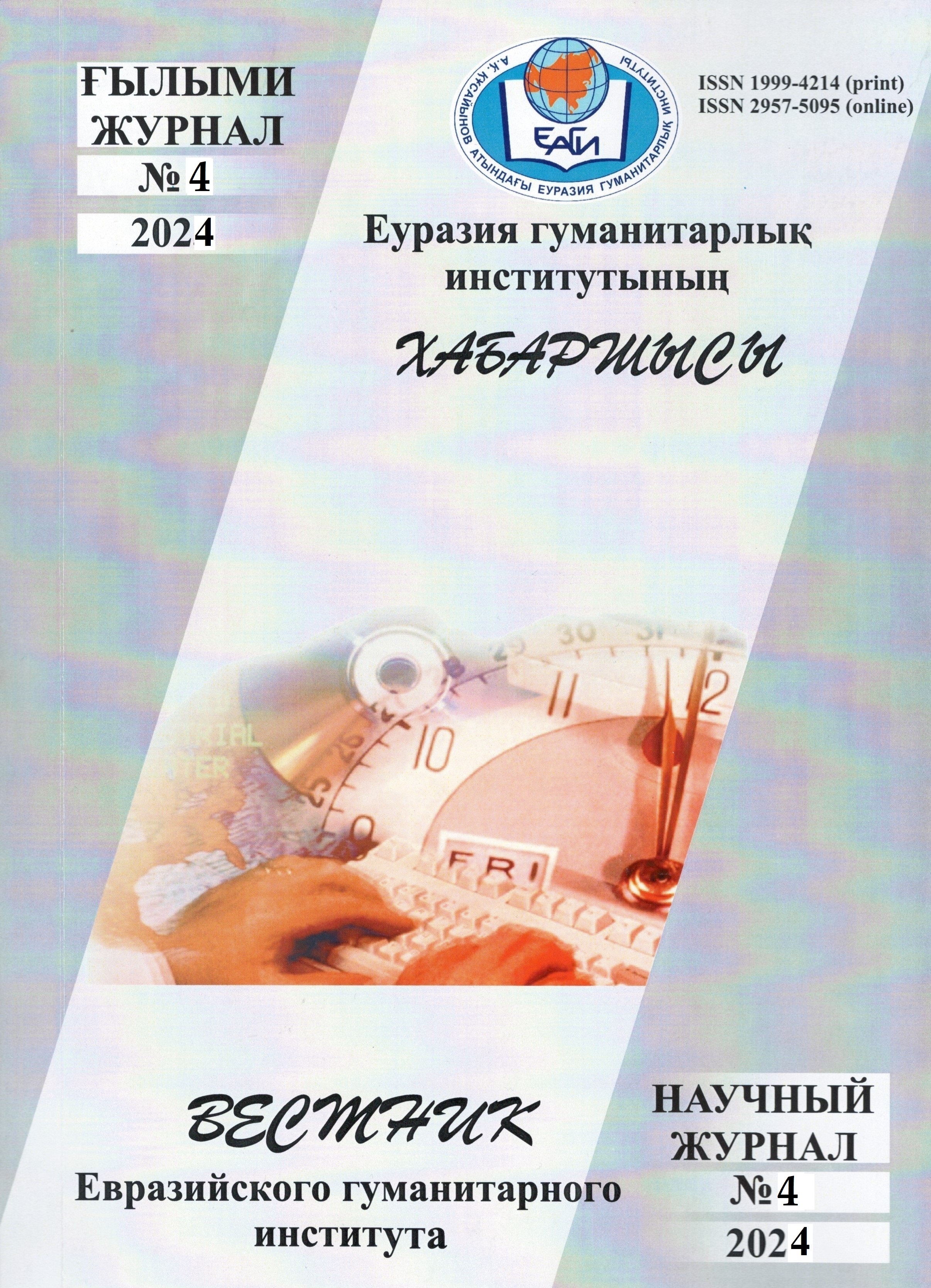ҚАЗАҚ-ТҮРІК ТІЛДЕРІНДЕГІ БАЛАНЫҢ ДҮНИЕГЕ КЕЛУІНЕ ҚАТЫСТЫ ФРАЗЕОЛОГИЗМДЕРДІҢ ЭТНОГРАФИЯЛЫҚ СИПАТЫ
Кілт сөздер:
этнография, фразеология, фразеологизмдер, салт-дәстүр, әлпештеу фольклорыАңдатпа
Мақалада баланың өмірге келуіне байланысты тұрақты тіркестер қазақ және түрік тілдерінде салыстырыла отырып, тілдік және этнографиялық талдаулар жасалды. Талдау барысында фразеологизмдердің этнографиялық сипаты анықталды. Мақаланың негізгі мақсаты – қазақ және түрік тілдеріндегі бала өміріне байланысты тұрақты тіркестердің этнографиялық сипатын ашу.
Мақала мазмұнына баланың дүниеге келген сәтінен бастап алғаш қадам жасағанға дейінгі кезең негіз болды. Сонымен қатар, талдау барысы балаға айтылатын бата-тілек мағынасындағы тұрақты тіркестер мен жалпы сәбиге қатысты әртүрлі фразеологизмдерді қамтыды. Этнографиялық тұрақты тіркестер қатарындағы қазақ тілінде кездесетін әрбір фразеологиялық бірліктің түрік тіліндегі баламасы мағына немесе тұлға жағынан байланысты екеніне көз жеткізілді.
Зерттеу нәтижесінде қазақ және түрік халықтарының ғұрыптарына сәйкес этнографиялық ерекшеліктері айқындалып, «бала өміріне байланысты тұрақты тіркестердің ұқсастықтарымен қоса, айырмашылықтары да жеткілікті» деген қорытынды пікір ұсынылды.


